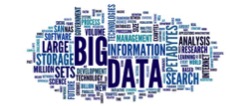In the light of recent events, namely the Cambridge Analytica scandal, the conversation regarding the value of data has never been more present in everyday conversation. Data is a new commodity, considered the oil of the digital era. Like the oil industry, many are calling the big tech companies to be broken up like Standard Oil. Big giant’s services are largely free to the public – you are paying by handing over more and more data.
 As in previous centuries with oil and railways, antitrust authorities need to asked to move from the industrial era into the twenty-first century. They need to understand where the value is in data and that the size of a company is not always indicative of value now.
As in previous centuries with oil and railways, antitrust authorities need to asked to move from the industrial era into the twenty-first century. They need to understand where the value is in data and that the size of a company is not always indicative of value now.
Furthermore, data is a driver of growth and change. Previously data was straightforward and well-defined such as sex, age, income, etc. However, this new economy of data is about analysing real time flows of often unstructured data; streams of photos, data from commutes to work, or data from the hundreds of sensors on airplanes. Everything is becoming a source of data.
There is a move away from using the data for more targeted ads, and with new artificial intelligence or “cognitive” services the data will create more revenue. For instance, computers can now recognize people with 98% accuracy.
With the increasing data sharing between parties, the more one’s privacy is threatened. Therefore, there needs to be more of an ability for users to access their data, and much more control of that data. 
In the current climate, data is non-rivalrous, as it can be copied and used by more than one person or algorithm at a time. It is easier to bring data services in house than outsource the work. The issue becomes when data is used for other purpose than agreed on – then confusion occurs regarding who owns said data.
Since data is considered a commodity, users need to be wary about signing up for free services. These services are not “free”. The companies are making their profit off the data that you provide to them by agreeing to their services.
 With the introduction of the General Data Protection Regulation (“GDPR”) in May 2018, more stringent rules will be placed on companies in regard to user information and data protection. The GDPR will enable individuals to better control their personal data. The regulation will set standard rules across the EU and guarantees more security for users.
With the introduction of the General Data Protection Regulation (“GDPR”) in May 2018, more stringent rules will be placed on companies in regard to user information and data protection. The GDPR will enable individuals to better control their personal data. The regulation will set standard rules across the EU and guarantees more security for users.
Disclaimer: The information in this article is for information purposes only. The article is not advice and should not be treated as such. The legal points made in this article are for general application only and should not be taken as specific advice for individual use.
